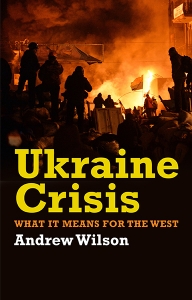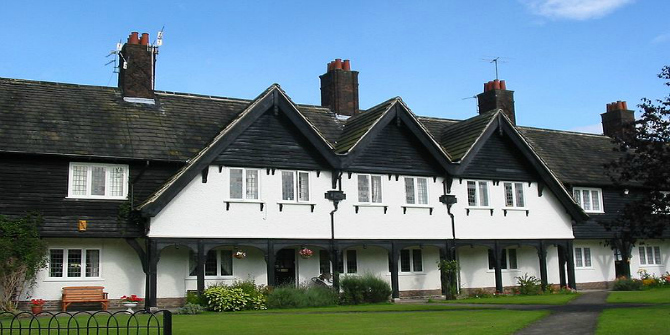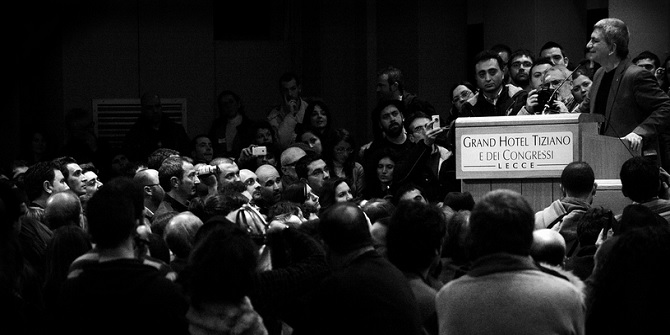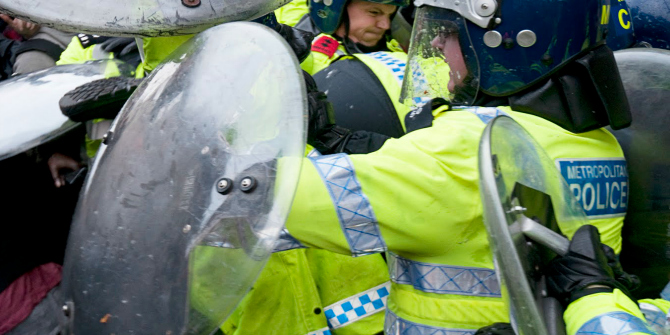Andrew Wilson has produced a remarkably good book on the contemporary crisis in Ukraine, finds Paul Wingrove. Although – of necessity – he roams some way beyond what has happened in Kiev, this is as reliable a guide to events in that country, and their global and regional implications, as can be found at present.
Ukraine Crisis: What It Means For The West. Andrew Wilson. Yale University Press. 2014.
 This book offers much more than the title suggests, and is all the more welcome for that. It is, primarily, an account of the crisis in Ukraine – encompassing the Maidan uprising in Kiev in the early months of 2014, the flight of Ukrainian President Yanukovych, the subsequent Russian annexation of the Crimea and the response of the Western powers, and the continuing separatist challenge in eastern Ukraine. The account is exceptionally well informed and well written (although sometimes the shower of names is confusing), and as contemporary as a book could be – I was intrigued to see, reading this text in November 2014, references to events occurring as late as August and September 2014. This is only possible with the use of the internet for much of the sourcing, and Wilson has mined a huge amount of this material (including Facebook and Youtube) as well as interviews and traditional academic sources. Given the nature of the internet, there may be some information which is questionable, but overall the account is well grounded and underpinned by the author’s extensive knowledge of the region – and he has watched enough ‘Have I Got News For You’ to know when to throw in the occasional ‘allegedly’. Overall, Wilson’s book represents an admirable form of contemporary scholarship, pitched somewhere in the spaces occupied by academia, think tanks and journalism.
This book offers much more than the title suggests, and is all the more welcome for that. It is, primarily, an account of the crisis in Ukraine – encompassing the Maidan uprising in Kiev in the early months of 2014, the flight of Ukrainian President Yanukovych, the subsequent Russian annexation of the Crimea and the response of the Western powers, and the continuing separatist challenge in eastern Ukraine. The account is exceptionally well informed and well written (although sometimes the shower of names is confusing), and as contemporary as a book could be – I was intrigued to see, reading this text in November 2014, references to events occurring as late as August and September 2014. This is only possible with the use of the internet for much of the sourcing, and Wilson has mined a huge amount of this material (including Facebook and Youtube) as well as interviews and traditional academic sources. Given the nature of the internet, there may be some information which is questionable, but overall the account is well grounded and underpinned by the author’s extensive knowledge of the region – and he has watched enough ‘Have I Got News For You’ to know when to throw in the occasional ‘allegedly’. Overall, Wilson’s book represents an admirable form of contemporary scholarship, pitched somewhere in the spaces occupied by academia, think tanks and journalism.
While mainly focussing on the Ukraine events of 2014, where he presents a full and detailed account, Wilson has two other major themes, both of which are tied into the Ukraine crisis. Firstly, he shows how new forms of politics and warfare have been developed by Russia and deployed in the Ukraine crisis and elsewhere: ‘political technology’ and ‘hybrid warfare’. Given that outright repression and murder of citizens is largely out of favour and politically embarrassing (Tiananmen, the use of mobile phones as witnesses and the dissemination of evidence via social media have substantially changed all that) authoritarian states such as Russia have turned to the manipulation of reality by way of ‘political technology’. Up to a point this is not new – Russian news source Pravda rarely presented ‘the truth’ – but the new techniques are both diverse and global, and just as likely to be operated and influential beyond Russia as inside its borders. Press and TV, social networks, think tanks, intellectuals, bloggers, protesters, thugs and ‘fascists’, political ‘leaders’, fake parties, ‘referendums’ , NGOs, ‘experts’ – all can be bought, owned or created, used to form opinion and sow doubt, without the appearance of crude dictatorship and blatant illegality. These are tools operated against Ukraine (and other states) and without the Maidan uprising, this model – along with Russian-style kleptocracy – would have been well established there. ‘Hybrid warfare’ – ‘the bastard offshoot of political technology’ – is the military counterpart: ‘little green men’ (unidentifiable military types), invisible special forces, unmarked trucks, ‘volunteers’, ‘patriots’, ‘humanitarian convoys’. Always the lurking threat of force, but nothing as traditional as simple attack and shooting. Notably, Russia’s occupation of the Crimea passed off virtually without gunfire.
Secondly, while this is a book about Ukraine, inside there is another and possibly more important book – about Russia, and especially about Russia’s confrontation with the west throughout a large part of ‘post-Soviet space’ (note Wilson’s sub-title). When Yanukovych declined to move forward on the Association Agreement with the EU at the Vilnius summit in 2013, that became the act which touched off the revolution in Kiev. It was the decisive point at which the choice had to be made for Ukraine – east or west? Russia or the EU? Ukraine became a proxy for that contestation in the ‘shared space’ between Russia and the EU.
After the end of the cold war, NATO expanded to the east (in breach of promise, say the Russians), mainly into the former socialist eastern European states, as did the EU. Then, with both debating moves still further eastwards – the EU by way of the Neighbourhood and Partnership programmes – Russia claimed to be threatened economically and militarily in a zone in which it sees itself as having ‘a privileged interest’, although just as likely an explanation is Russian discomfort at having EU values and practices (democracy, rule of law) on their doorstep.
In fact, there were already signs – before Ukraine – of a Russian challenge to the west in the response to, for example, the ‘colour revolutions’ (Georgia, Ukraine, Kyrgyzstan) and in the Russian-Georgian war of 2008, but Ukraine in 2013-14 became the point at which this east-west clash was, and is, being played out – and may be played out for a long time. It isn’t, perhaps, that the EU or Russia wants to win in Ukraine (both have doubts about the costs that would come with victory), more that neither side wants to lose. Russia could ‘not lose’ simply by keeping the conflict alive at a low level, although an equally probable outcome is the constant movement of people and material from Russia into eastern Ukraine until, over time, it becomes de facto a detached state.
Wilson’s judgement of Russia under Putin (in the perhaps mischievously titled chapter ‘Russia Putinesca’) and of Russia’s regional policy, is pretty clear. Putin has a ‘paranoid mind’ (p. 31). Russia is ‘run by some very weird people’ (p. 19) and is a ‘sociopathic state’ (p.36), and is prone to angst, self-pity and an angry self-justification, which drives its international policy. Putin’s claim that the fall of the USSR was the ‘greatest geo-strategic catastrophe of the twentieth century’ is companion to the founding myth of the new Russia – ‘national humiliation’ – which has given Russia a ‘dangerous and corrosive victim complex’ (p. 183).
Highly critical of Russian politics and diplomacy, Wilson also wags a finger at the EU’s feeble response to Russian pressure on Ukraine. EU sanctions on Russia seem designed not to be overly painful, although it may be that the mood in the West has recently changed. Canada’s Prime Minister (allegedly) told Putin at the November G20 summit in Australia to ‘get out of Ukraine’, and at the same event Angela Merkel (allegedly) spent hours closeted in a hotel suite with Putin, following which the indications were that she had finally lost patience with him. In her Lowy Lecture (Sydney, 17 November) she was blunt enough:
‘Nevertheless, we’ve seen that even in Europe there are still forces which refuse to accept the concept of mutual respect or the settlement of conflicts using democratic and rule-of-law means, which believe in the supposed law of the strong and disregard the strength of the law…. Russia is violating the territorial integrity and the sovereignty of Ukraine. It regards one of its neighbours, Ukraine, as part of a sphere of influence’.
So the tussle over the ‘space between’ continues, and it is no surprise that Putin is still pursuing his Eurasian Union project (scheduled for 2015) – his ‘eastern EU’ – even though it looks more and more like an own goal. While it may draw a line, and assert Russia’s regional position, behind that line the only potential member states of the union will be corrupt authoritarians – banding together to rather perversely advertise themselves as a club of corrupt authoritarians. And while the Soviet Union and Russia often fretted when the west suggested that Moscow represented an unmodernised semi-Asiatic authoritarianism, here is Putin’s ‘Eurasian’ club confirming precisely that view (the clue is in the title, as they say).
Wilson has produced a remarkably good book on the contemporary crisis in Ukraine. Although – of necessity – he roams some way beyond what has happened in Kiev, this is as reliable a guide to events in that country, and their global and regional implications, as can be found at present.
Paul Wingrove was formerly Senior Lecturer in Politics at the University of Greenwich. Read more reviews by Paul.








2 Comments